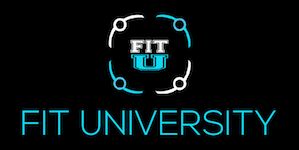With all the hype surrounding gluten-free products, many people are left wondering if they should be eating gluten. However, before cutting something out of your diet completely, it’s good to get informed. So first off, we should begin by understanding what gluten is exactly, because clearly, lots of people don’t know.
Here’s what gluten is:
Gluten is a protein made up of two smaller proteins, gliadin, and glutenin. It’s what gives breads and pastries their chewy texture and makes dough sticky and elastic. Gluten is actually a natural part of many grains, including wheat, barley, and rye.
Here’s what gluten is not:
“Gluten is a vague term. It’s something that’s used to categorize things that are bad. You know, calories, that’s a gluten. Fat, that’s a gluten.”
Jimmy Kimmel victims and This is the End quotes aside, these facts beg the question: where did this sudden widespread fear of gluten come from?
People who suffer from celiac disease have to maintain a gluten-free diet because processing gluten is harmful to their digestive tract. Although the reaction it causes is quite different from an allergic reaction, people with celiac disease avoiding gluten is just like people who have allergies avoiding allergens.
There are always warnings on ingredient lists if something might contain a common allergen like nuts—but you wouldn’t stop eating peanuts if “peanut-free” became a fad, would you? For reasons unknown, gluten-free became another health buzzword. The naturally occurring substance has been branded as some sort of toxin at the root of obesity and other health-related issues. However, there is still no evidence to show that gluten-free diets are healthier for the average person.
In addition, there are often a lot of additives in poorly made gluten-free options that might actually be harmful, such as added sugars and fats. You may also be missing out on other vital nutrients contained in traditional foods by avoiding them solely based on their gluten contents. While it’s great that there is more awareness and an abundance of food options for people with celiac disease, it doesn’t mean everyone else needs it, too.

[…] Why Gluten Free ≠ Healthy […]
[…] Why Gluten Free ≠ Healthy […]
[…] me appear 6 months pregnant for about 7 years. TMI, I know. I’ve briefly eliminated gluten and dairy. I’ve gone low-FODMAP. Those didn’t work at all, so I just resigned myself to a […]